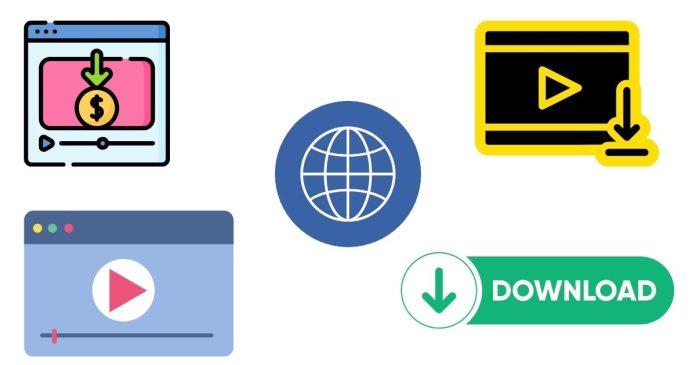In the digital age, where streaming services and video platforms dominate the internet, the question of whether it’s possible to download videos from any website frequently comes up. While downloading videos can be convenient for offline viewing, it raises both technical and ethical considerations. Let’s dive into the theoretical possibilities and limitations of downloading videos from any online source.
The Basics of Video Streaming and Downloading
When you stream a video, your device temporarily downloads chunks of the file to play it in real time. This is how platforms like YouTube, Netflix, and Vimeo work. However, many websites use advanced technologies to prevent unauthorized downloading of their content.
- Direct Download: Some websites, like free video repositories or educational platforms, provide direct download links for their videos. This makes downloading straightforward.
- Third-Party Tools or Software: For websites without download options, third-party tools can sometimes intercept the video data and save it to your device.
Technical Considerations
From a technical standpoint, downloading videos from any website is theoretically possible, but it depends on the methods and technologies used by the website to deliver the video.
- Unencrypted Videos
Websites that stream videos without encryption (usually smaller or less sophisticated platforms) are easier to download from. A simple browser extension or right-click > “Save As” can often do the trick. - Encrypted Videos (DRM)
High-profile websites, like Netflix, Amazon Prime, and Disney+, use Digital Rights Management (DRM) to protect their content. DRM encrypts the video files, making it difficult to intercept and download. While there are tools that claim to bypass DRM, such methods are technically complex, often illegal, and violate terms of service. - Adaptive Bitrate Streaming
Websites using adaptive bitrate streaming (e.g., HLS or DASH protocols) break videos into small chunks and stream them dynamically. To download such videos, you’d need specialized software that can combine and reconstruct these fragments. - Server-Side Restrictions
Some websites restrict downloading through:- Geo-blocking: Limiting content availability to certain regions.
- Hotlink protection: Blocking unauthorized access to video files.
- Captcha or Login Requirements: Preventing automated tools from accessing content.
Methods for Downloading Videos
If you’re looking to download videos, here are some of the common methods used:
- Browser Extensions
Extensions like Video DownloadHelper or SaveFrom.net work well on many websites but often fail on platforms with DRM or complex streaming protocols. - Video Downloading Software
Tools like 4K Video Downloader or JDownloader can download videos from popular platforms. However, these tools often cannot bypass DRM. - Screen Recording
When downloading isn’t possible, screen recording software like OBS Studio or Camtasia can capture the video as it plays on your screen. This method, however, is time-consuming and may result in quality loss. - Command Line Tools
For tech-savvy users, tools like youtube-dl or yt-dlp can be used to download videos from many websites. However, these tools may require additional scripts to bypass certain restrictions.
Ethical and Legal Considerations
Even though downloading videos is technically possible, it’s important to consider the ethics and legality of doing so:
- Copyright Laws
Most videos, especially on premium platforms, are protected by copyright. Downloading such content without explicit permission is typically illegal and can result in penalties. - Terms of Service
Many websites explicitly prohibit downloading their content in their terms of service. Violating these terms can lead to account bans or legal consequences. - Fair Use
In some cases, downloading content for personal, non-commercial use may fall under “fair use.” However, this varies widely by jurisdiction. - Respect for Creators
Content creators rely on views, ads, or subscriptions for income. Downloading videos without proper permissions can hurt their earnings.
Can You Download Videos from Any Website?
In theory, yes—but only if you have the right tools, technical knowledge, and disregard for legal or ethical boundaries. Websites with little to no security measures are the easiest to download from, while those with DRM and advanced encryption require more sophisticated techniques that may not be worth the effort or legal risk.
Downloading videos from any website is technically possible but comes with significant hurdles, especially for platforms that protect their content. Instead of attempting to bypass restrictions, it’s better to use legal means, like premium subscriptions or offline viewing options provided by many platforms.
When in doubt, always respect copyright laws and support content creators by consuming media through authorized channels. After all, ensuring fair compensation for creators benefits everyone in the long run!


